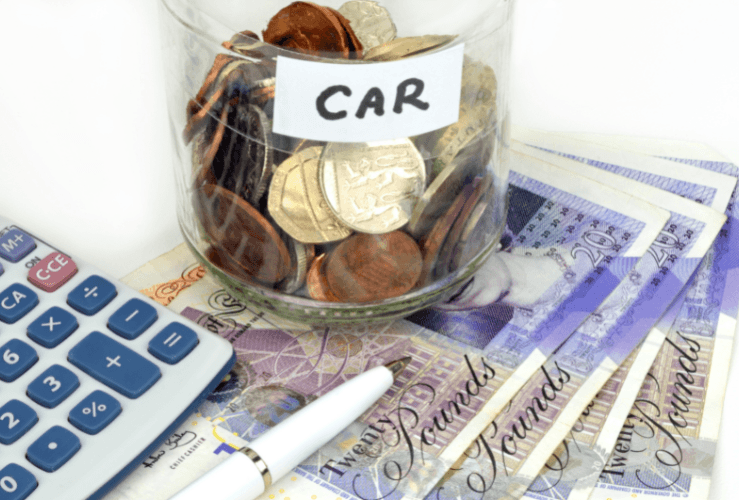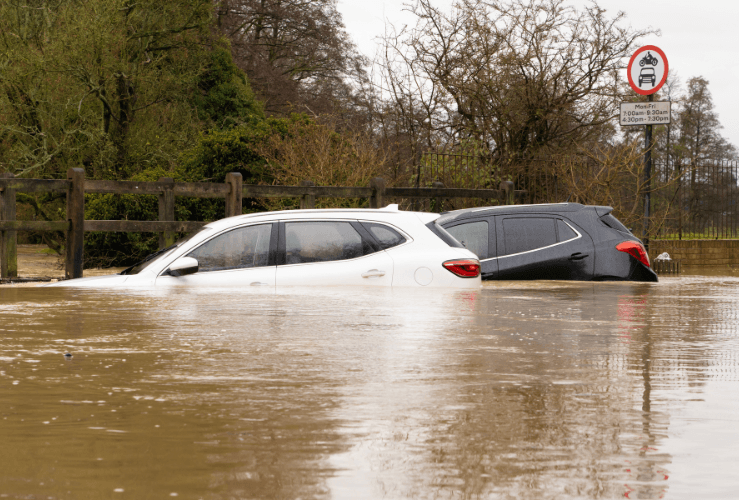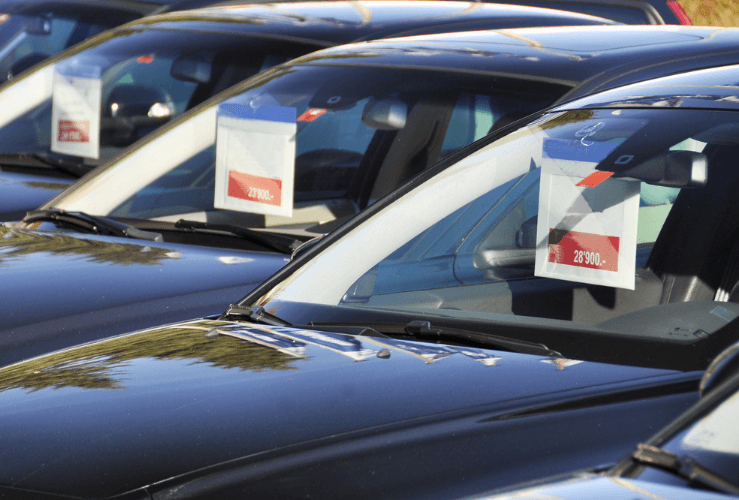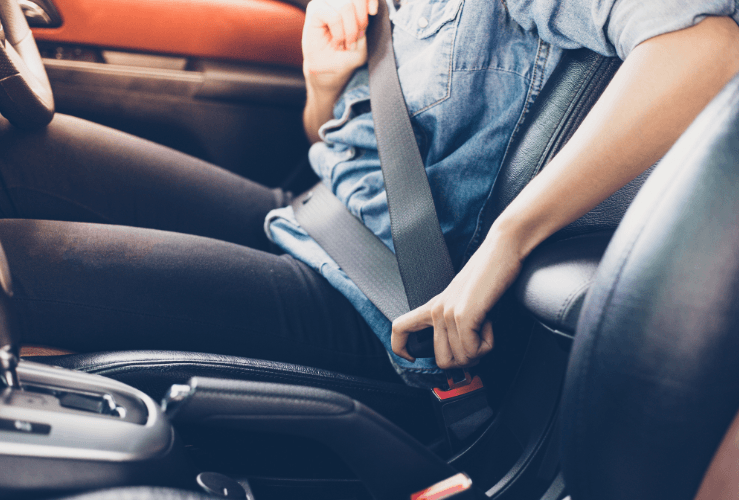Looking to buy your first car?
Getting behind the wheel of your very first car is an exciting experience: you'll be able to travel as and when you want, giving you a real sense of independence.
Fancy taking a trip to the beach or a national park? You can just get in your car and go.
Owning a car is also likely to save you time - since you won't need to hang around waiting for a bus, train or taxi - or wait to be picked up by your friends or parents.
Driving your own vehicle also has the benefits of privacy - you're in your own personal space. You can play your favourite music without troubling anyone else!
 For some, travelling by car also feels safer than other modes of transport.
For some, travelling by car also feels safer than other modes of transport.
Additionally, you’re entirely responsible for the vehicle’s safe use, upkeep and maintenance - which can feel great, but demands ongoing care and attention.
Here’s everything you need to know about buying a car for the very first time.
Paying for your first car
When thinking about how to buy your first car, your first hurdle is, unsurprisingly, money. This may demand some research and careful thought.
You might choose to access savings, ‘the bank of mum and dad’, or apply for finance.
Should you finance your first car?
If you don’t have savings, or your parents are unable to help, you’ll need to look at finance options. Naturally, you’ll need to be in a suitable financial position to make the monthly payments.
Next, it’s time which type of car is best for you (although this may well be influenced by how you plan to fund the purchase).
Costs of buying your first car
Road tax
Your first annual cost will be road tax - or Vehicle Excise Duty (VED).
Pure electric and hydrogen cars attract zero VED, but others cost at least £155 in the second year.
The more CO2 a model emits, the more it costs to tax.
Some used cars may cost nothing in VED if they were built before a certain year. For example, a pre-2017 Toyota Prius 1.8 VVT-h won't cost anything to tax, while newer models attract £155 per year.

Car insurance
Similarly, how much car insurance you pay annually will depend on the model you choose.
There are 50 insurance groups: group one is the cheapest while group 50 is the most expensive.
A Hyundai i10 1.0 MPi (67) Auto SE Connect, for example, is in group 3 - and is therefore much cheaper to insure (between £400 and £1,000 depending on the age of the driver).
Conversely, a Porsche Cayenne Turbo 3.6 GTS 5d Tiptronic S lies in group 50 and could cost as much as £2,000 a year to insure for someone in their 20s.
Fuel
Filling up your car will be one of the biggest costs of ownership.
At time of writing a litre of petrol costs around 1.64, up from a low of 1.06 in May 2020 - a rise of 55%.
The logical way to combat this cost is to buy a fuel-efficient vehicle. For instance, a Vauxhall Astra 1.5 Turbo D returns around 62.8mpg, while a Renault Clio E-Tech Hybrid gives you 64.2mpg.
By comparison, a Mercedes S500 returns just 26.9mpg.
Generally, cars that are cheaper to buy in the first instance are often cheaper to run, too.
Maintenance costs
Ongoing maintenance, upkeep and ad-hoc repairs will all add up over the year.
According to a study by KwikFit, the average UK driver spends £40 per month on car maintenance and servicing - this figure includes unexpected repairs, cleaning and breakdown cover.
According to Copart, the Hyundai i10 is one of the cheapest cars to keep in working condition, with an average annual repair bill of just £147.25.

How to find your first car: Should you buy a new or used?
Buying a used car comes with a number of benefits, including:
- Considerably cheaper than a new car
- The previous owner has probably taken the 'depreciation hit' - with cars worth around 60% less three years after being purchased new
- You won’t have to wait for the car to be delivered
- Second hand cars are on sale for every budget
But buying a brand new car also comes with pros, including:
- Manufacturers' warranty
- A variety of finance options - so you can spread the cost over time
- You'll know the car is (or should be) in perfect working order, eliminating the worry that the previous owner didn’t take care of it (because there wasn’t one!)
- You'll have the very latest tech
- You can choose the exact spec you want (colour, trim, optional extras etc.).
- It may have a better safety kit than an older vehicle
There are four main ways to buy your first car: new car dealerships, used car dealerships, private sellers, or car auctions.
The last three on the list will almost certainly be cheaper than the first but come with potential drawbacks - most of which are listed above.
Where to buy your first car: Family and friends?
You might also buy a car from a close family member, relative or friend. This option should mean you’re made aware of any potential issues with the car and may even get a better price!
The downside is that if the car breaks down soon after purchase, it could cause friction.
An ideal situation might be a relative who has a car with very low mileage - which should mean the car’s components are not as worn as one with higher mileage.
A car that’s done less than 10,000 miles a year since it was first bought would be considered to have low mileage.
How old should your first car be?
This leads to the obvious question: how old should your first car be?
Generally, cars start going wrong after the three-year mark.
The newer your car, the less likely it is likely to suffer from mechanical problems.

Choosing a car with a high safety rating
Because safety is a key concern for car buyers, and because safety regulations continue to expand in scope, newer cars tend to have better safety systems than older ones.
That’s not to say you can’t pick up a used car with great safety features. The Fiat 500L, for instance, includes six airbags, a safety cell, a steering column that collapses in the event of a frontal impact, and automatic emergency braking.
Consider passenger capacity and storage space when buying your first car
Those looking for their first car tend to be younger - in fact 1 in 5 drivers get their car when aged just 18. As such, many young drivers don’t have children, so a smaller car may suffice.
Equally, with no kids, you’re less likely to need to do large shopping trips - so boot space may be less on an issue.
That said, if you plan to take your friends on trips frequently, or ferry relatives around, you may need more or better passenger capacity, and a roomier cabin.
And if you plan to undertake road trips either in the UK or abroad, or you have a hobby that requires extra storage space, you might opt for a car with a bigger boot.
Easy to drive
As a new driver, you’re likely to want a car that’s easy to drive.
The Nissan Leaf, Volkswagen Up, and Fiat 500 are generally considered easy to drive - while also being affordable (especially if bought used).
Models to avoid may include the Alfa Romeo Mito (considered noisy and uncomfortable) and the Fiat Punto (unreliable and uncomfortable).
Reliability
No driver wants to be stranded by the roadside - but this goes double if you’ve just started driving. With this in mind, reliability is a big factor when buying your first car.
For example, the What Car? Reliability Survey 2022 ranks the Toyota Aygo as the most reliable small car, while the Ford Fiesta was the least reliable.
Get advice when buying your first car
According to a survey by DaySure, 63% of first time car buyers asked their parents for advice.
This makes sense, since they are likely to have many years of driving experience under their belts, and they won’t have any vested interests - aside perhaps from insisting on a car with good safety features.
24% of respondents asked their friends for car buying advice, but just 13% relied on reviews. And 6% asked their driving instructors for tips.
Your first car doesn’t need to be forever
Whichever model you choose - whether it's new or used - is unlikely to be the one you drive for years on end. In fact, first cars are usually only driven for around two years before being replaced.
You may decide to upgrade your vehicle if you have children, for example, or if you start earning enough for a higher-spec vehicle.
Either way, while it’s important that your first car is safe, affordable and easy to drive, you always have the possibility of changing it later on.





